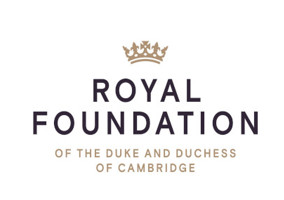Two royal charities acted within charity law, although in one case trustees did not document spending decisions well enough, the Charity Commission has concluded.
The Commission opened two compliance cases to look at decisions about how funds were spent. One case was into a charity run by the Duke and Duchess of Sussex and the other into the foundation connected to the Duke and Duchess of Cambridge.
All four senior royals had previously been involved with the same charitable foundation. A review of the foundation's work in 2019 led to the Sussexes setting up their own charity and their names being removed from the original charity.
Sussex Royal: The Foundation, was established by the Duke and Duchess of Sussex, in June 2019. It later changed its name to MWX Foundation, and is now in the process of shutting down.
The Royal Foundation of the Duke and Duchess of Cambridge had given this new charity nearly £300,000 during its existence. In turn the MWX Foundation had transferred some funds to Travalyst, a sustainable travel programme the Duke of Sussex is involved with.
While the Commission concluded that both charities had acted within charity law, it did say decisions made by the MWX Foundation should have been documented better.
Relationship between MWX Foundation and the Royal Foundation
The Royal Foundation gave MWX Foundation and unrestricted grant of £145,000 to help set it up. It later gave the Sussex foundation a further £151,855 to deliver Travalyst's sustainable travel programme.
The regulator found that both the transfer of funds to the MWX Foundation and onwards to Travalyst was allowed under charity law.
The Commission said that trustees of the Royal Foundation acted in accordance with the regulator’s guidance that found no issues of concern.
Support for sustainable travel
Travalyst describes itself as a non-profit organisation. It was set up by the Duke of Sussex with travel companies to encourage sustainable behaviour.
The Commission said that promoting sustainable travel is a legitimate charitable activity, and therefore Travalyst was able to receive the funds. It added that it had provided regulatory advice to the trustees of MWX Foundation to ensure that these funds are only spent for charitable purposes.
Furthermore, the Commission said that there was no evidence that conflicts of interest between MWX Foundation and Travalyst were managed inappropriately.
MWX's spending
Almost half of MWX's funds were spent on legal and administrative costs, the charity regulator found.
Trustees can use charitable funds for legal advice and other professional and administrative costs to help set up and close a charity.
The Commission noted that “trustees took a decision to close this charity just 12 months after it was established, doing so during difficult and unexpected circumstances”.
Therefore, it found the “spending itself was not unreasonable given the unexpected events and unique circumstances which surrounded this charity”.
However, the Commission has found that decisions on spending were not adequately documented, “limiting the ability of the trustees to demonstrate the reasons behind those decisions”.
This failure to properly record decisions does not represent best practice and is not in line with Commission guidance.
‘Before setting up a charity, think about the longer term’
Helen Earner, director of regulatory services at the Commission, said that although the trustees complied with their duties under charity law, the MWX Foundation should “have done more to document its decisions, especially regarding the charity’s expenditure on legal and administrative costs”.
She added: “We also note that a substantial proportion of funds went into setting up and then winding up a charity that was active for a relatively short period of time. Trustees cannot predict future events when establishing a new charity – circumstances can change after a charity has been set up.
“But all trustees, before setting up a charity, should think about the longer term, and consider carefully whether a new charity is the best way of achieving the intended aims. This helps ensure that set-up costs are offset by longer-term impact.
“As the charity is in the process of winding up, and in addition to formal advice regarding the application of the funds to Travalyst, the Commission has offered the charity general guidance regarding the dissolution process.”
Related articles












